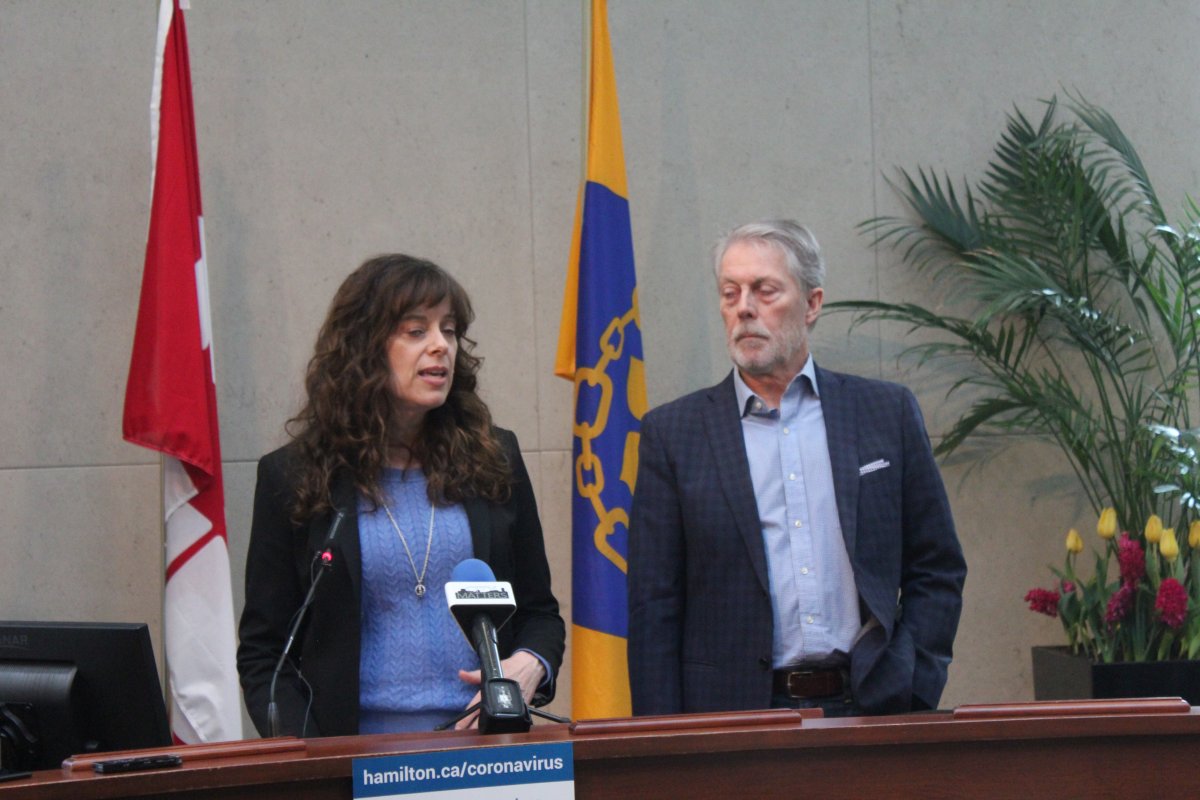Hamilton’s public health department has issued notices to 31 residential care facilities, ordering them to modify operations to limit the spread of COVID-19.

Over the past week, public health has been auditing and assessing long term care homes, retirement homes, and residential care facilities — also known as second-level lodging homes — to ensure they’re following practices that will prevent the virus from spreading.
During a virtual town hall on Wednesday night, Hamilton’s medical officer of health Dr. Elizabeth Richardson said the city has ordered 31 of those facilities to come into compliance with infection prevention and control practices under the Health Promotion and Protection Act (HPPA).
“We’ve already had calls from a number of them saying they get it, they’re moving on with it and becoming compliant,” said Dr. Richardson.
Paul Johnson, the director of Hamilton’s emergency operations centre, said they’re working to limit the risk of infection among the 10,000 Hamiltonians who live in “congregate settings” — which includes residential care facilities. Those are not the same as long-term care homes or retirement residences.
“Sometimes it’s a temporary home, an emergency shelter for homeless men, women or children and families. For others, it’s a little more permanent,” said Johnson.

Get breaking National news
“That’s a lot of people and a lot of places. And all of us will play a little bit of a role in that.”
There was some good news to come out of Wednesday’s town hall. The city is looking at increasing testing according to the province’s newly expanded criteria, as well as opening a third assessment site.
“We know that testing is a fundamental part of controlling outbreaks like this one,” said Dr. Richardson, adding that those who live and work in group homes will be prioritized.
Since the first two assessment centres opened last month, public health has admitted 2,850 people and 2,270 tests have been administered. The delay in test results coming back has also decreased from between 10 and 11 days to about two to three days.
The “doubling time” of cases in Hamilton — which represents how often the city’s cases double — has increased from five to 10 days, and is now sitting at about 20 days.
That’s compared to jurisdictions where no preventative measures had been implemented and cases were doubling every two to three days.
“So that’s really good news, especially as we open testing back up and we get to see more of what’s actually going on, we’ll be tracking that to further understand that piece,” said Dr. Richardson.
One of Hamilton’s outbreaks has also ended.
One staff member had tested positive at Wentworth Lodge in Dundas and an outbreak had been declared at that facility on April 5.
“Enough time has passed with no new cases that we’ve actually just declared this outbreak over this afternoon,” said Dr. Richardson.
The city continues to monitor outbreaks at several other locations.
There have been no new cases reported at Heritage Green nursing home in Stoney Creek, while Cardinal Retirement Residence has 26 confirmed cases among residents, as well as 16 staff cases. Four residents of Cardinal Retirement have died from the illness.
An outbreak at St. Joseph’s Special Care Nursery has seen no further cases at this point, aside from three health care workers who initially tested positive.
There is one confirmed case at Chartwell Deerview, two at Kingsberry Place, and one at Clarion Nursing Home among staff.














Comments